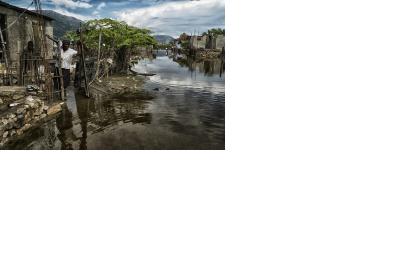UNOOSA presented its efforts related to the upcoming World Conference on Disaster Risk Reduction (WCDRR) during the fifty-second session of the Scientific and Technical Subcommittee (STSC) of COPUOS. The office presented its relevant activities during a symposium organised by Japan on the sidelines of STSC as well as in front of the plenary.
The WCDRR is scheduled to take place in Sendai, Japan, from 14 to 18 March 2015, and will result in a new global agreement on disaster risk reduction. UNOOSA aims to raise awareness on the importance of space-based information in disaster risk reduction efforts and therefore liaises with Member States and partners to include corresponding paragraphs in the text of the agreement and in the indicator system.
For the post-2015 phase of disaster risk reduction, the programme plans to establish a global partnership involving international, regional and national organizations from the disaster-risk reduction and space communities as a way to facilitate the use of space-based applications, including Earth observation. Similarly, UN-SPIDER aims to strengthen a global partnership to improve Early Warning systems worldwide through the use of satellite-based applications.
In 2015, UNOOSA will furthermore work to raise the profile of satellite-based resources in the Sustainable Development Goals which will be decided in September 2015 in New York and in the new Climate Change agreement to be finalised in Paris in December 2015.
From 26 to 28 May 2015, UNOOSA/UN-SPIDER will hold the United Nations/Germany International Conference on Earth Observation in Bonn, Germany. The event will shed light on the different applications of space-based information in all three processes: The post-2015 global disaster risk reduction framework, the Sustainable Development Goals and the new Climate Change Agreement. The conference is currently open for applications. Participants requesting financial support need to apply by 13 March 2015.

